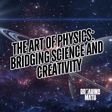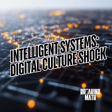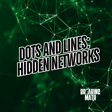Introduction to Breaking Math
00:00:00
Speaker
Welcome back to Breaking Math, the podcast where we explore the fascinating intersections of mathematics, science, and technology. I'm your host, Autumn Finaf.
Synthetic Biology: Building Cells from Scratch
00:00:08
Speaker
Today we're going to dive deep into the world of synthetic biology, specifically the revolutionary field of synthetic cells.
00:00:17
Speaker
These are not your typical cells found in nature, but ones that scientists are working hard to build entirely from scratch using molecular components. The implications of this research could change the way we think about life itself, giving us newing us new tools for medicine, environmental remediation, and even space exploration.
00:00:38
Speaker
But building synthetic cells is no simple task. It requires expertise across fields like biology, nanotechnology, and even control systems engineering.
Guest Introduction: Dr. Elizabeth Strahalski
00:00:50
Speaker
To guide us through this complex and exciting topic, we're thrilled to have a very special guest with us today, Dr. Elizabeth Strahalski.
00:01:00
Speaker
Dr. Strahalski's journey is as impressive as it is unique. She earned a bachelor's in science in physics and a bachelor's in arts and religious studies from the University of Rochester, followed by ah master's in science and PhD in physics from Cornell University.
00:01:17
Speaker
After her academic training, she was awarded a National Research Council postdoctoral research associateship at the National Institute of Standards and Technology. also known as NIST, where she specializes in nanofabrication, nanofluidics, and confined biopolymers. And that's just the beginning. Dr. Stracholsky then transitioned to DARPA, the Defense Advanced Research Project Agency, where she managed over $100 million dollars research portfolio.
00:01:46
Speaker
at the interface of synthetic biology, nanobiotechnology, and fluidic devices. Her leadership in advanced experimental and theoretical research in these areas has been groundbreaking.
00:01:59
Speaker
Today, she's back at NIST, where she founded the Cellular Engineering Group, part of NIST's engineering biology program. She also plays a key role in the International Build a Cell initiative, working towards the ambitious goal of creating fully synthetic cells.
00:02:17
Speaker
From the perspective of the systems that she studied, synthetic cells are pretty big. She started working in experimental high-energy physics, think particle accelerators, to smash atoms and subatomic particles at the length of about an angstrom, or 10 to the negative 10 meters.
00:02:35
Speaker
Her work in nanotechnology was an order of magnitude or more bigger at 10 to the negative 9 meters. the synthetic cells themselves are generally relatively gigantic at 10 to the negative 6 meters or more.
00:02:55
Speaker
However, a micrometer is still pretty small for most people with about a 100th of the width of a human hair. Her current research is focused on something both profound and practical, discovering the fundamental rules that allow us to predict and control the function of engineered biological systems.
00:03:17
Speaker
These efforts are at the cutting edge of synthetic biology, pushing the boundaries of what we understand about life, engineering, and the future of biotechnology. In today's episode, we'll be discussing how synthetic cells are made, what the biggest challenges are, and why this research could be changing the future of medicine, environmental science, and maybe even astrobiology.
Exploring Synthetic Cell Creation and Its Impacts
00:03:41
Speaker
So whether you're a biologist, engineer, or just someone curious about how we might one day build life from the ground up, you won't want to miss this episode.
00:03:51
Speaker
Without further ado, let's jump into the fascinating world of synthetic biology with Dr. Elizabeth Strahalski.
00:04:05
Speaker
Hi, Elizabeth. How are you doing today? Hi, Autumn. I am excited to be here. Thanks so much for having me here. um It's a pleasure to speak with you and I'm excited to share what I do with your listeners. Absolutely. It's a pleasure to have you on. So tell us a little bit about yourself and your work at NIST.
NIST's Role in Science and Trade
00:04:24
Speaker
Well, NIST is the National Metrological Institute for the United States. And what a lot of people don't realize is that pretty much every country has an institute focused on weights and measures.
00:04:37
Speaker
Now, this is because you need those in order to do to trade, but they also help us understand how to measure the world around us to understand it more deeply for basic science.
00:04:48
Speaker
I'm here because I love measurement. I love knowing how well we know things. You know, anybody who is a scientist, I think, especially I'm going to speak for experimentalists here because that's really what I am in my heart of hearts. Absolutely.
00:05:01
Speaker
You know, you never know what you're going to learn about the world and by extension about yourself when you get out of bed in the morning and go to the laboratory. It's such a privilege to be able to do that.
00:05:12
Speaker
I love it. I think that's the great thing that we get to do as experimentalists in comparison to folks who do theory all the time. You always get to learn something new and you're finding something absolutely fascinating every single turn, right?
00:05:28
Speaker
Theory is beautiful. Don't get me wrong. I don't want to disparage anyone's contribution, but experiment, I feel, is the ultimate arbiter of the truth. Yes, it is. Now, out of curiosity, what got you into the research that you do? Tell listeners a little bit more about your work. Yeah, I had kind of a nonlinear path.
00:05:48
Speaker
So, you know, to anybody who's listening, follow your heart, you know, find what interests you look to where you can have your contribution. Don't feel like because you start walking in one direction, you can't turn and take another direction. So I i started interested in astronomy, then got a job in experimental high energy physics.
00:06:07
Speaker
started doing research in nanotechnology, got into separation science and medical diagnostics. And ah when I came to NIST, I had the opportunity to learn about this new field, synthetic biology, and I've been working in it ever since. Super exciting.
00:06:24
Speaker
So your work deals with ah synthetic cells, correct? Yes. It is guided by a vision of building synthetic cells. I want to be careful here because to the best of my knowledge, no one has created a fully synthetic cell yet.
00:06:40
Speaker
That day is coming, but we're not there yet. Okay. So how close are we to actually building synthetic cells and what has already been done with this work?
00:06:51
Speaker
I think i want to answer your question, but I think it's worth pausing here for a moment and asking why we're even so fixated on cells in the first place. Sure.
Understanding and Manipulating Cells
00:07:01
Speaker
And i I think we are fixated on them, and and rightly so, because we can consider them as the fundamental units of life as we know it. And if we can really deeply understand cells and understand how to build them and how to make them do the things we want them to do for us, not just the things they were naturally evolved to do, then so many possibilities open up in terms of treating disease or securing our food or for manufacturing.
00:07:31
Speaker
So the Y cells, humans, were we're curious tinkerers by nature. When we want to understand something, we tend to take it apart piece by piece until we understand those pieces.
00:07:42
Speaker
Once we have that pile of pieces, we tend to want to figure out how to put those pieces back together two you know, remake that assembled thing. But for living cells, we have a good handle on the individual parts.
00:07:56
Speaker
And we're learning more and more every day. i think where we're stuck is which parts do we really need to build a synthetic cell? And then how do we put those parts together? So imagine somebody hands you one of those, i don't know if you've ever walked into a Lego store, and you've seen that big Millennium Falcon that they have. Of Like the really big one, right? Yes.
00:08:18
Speaker
Imagine you take that home and you're like, wow, this is really cool. I wonder how they put this together. You start taking it apart brick by brick. Well, fine. Maybe you get a sense sort of for where those different bricks go for the Millennium Falcon.
00:08:29
Speaker
And once you're done, you have this pile of bricks. But you have no instruction book because you just walked off with the model. You have no instruction book for for how to remake that Millennium Falcon. So but you can imagine we have a pile of biomolecules and we don't necessarily understand how to reassemble those to make that original cell.
00:08:45
Speaker
Now, further consider you're sitting in front of your pile of bricks and maybe you don't want to make the Millennium Falcon. and Maybe you want to make an X-Wing. Well, now you're really in trouble because you have no guiding rules for how to take the parts from the Millennium Falcon and make that X-wing.
00:09:00
Speaker
And this is sort of where we are for building synthetic cells. We kind of have a ah pile of parts, but we don't have the that instruction booklet for either remaking that individual cell that we first took apart or for building something else.
00:09:15
Speaker
So I think we're looking for those generalizable rules for building different types of cells out of the parts that we have. Super interesting about that, because if you're taking these different parts from bottom-up or top-down approach, can you but explain some of these strategies?
Strategies for Synthetic Cell Creation: Top-Down vs Bottom-Up
00:09:34
Speaker
and new no People like to name things, and i want to be clear that at the end of the day, the folks who are working towards building synthetic cells are generally a pretty practical, pragmatic bunch.
00:09:47
Speaker
And the problem we're working on is so hard that we're going to do whatever works. um So top down, bottom up, these are words that I first came across when I was working in semiconductor electronics manufacturing, and I building basically computer chips. So bottom up would be like molecular assembly. You're trying to build it from individual atoms or individual molecules.
00:10:10
Speaker
So that would be like you You walk up to your periodic table and say, I'm going to make a cell. And you have to assemble those biomolecules and then assemble those biomolecules into different functional units.
00:10:21
Speaker
And then eventually becomes alive. Magic happens. We don't know what happens yet, how to get there, but it's alive. Tap down is like you start with something that's already alive. And the J. Craig Venter Institute has a good example of this with their JCVI SYN 3B cell, which is one that the community likes to use.
00:10:41
Speaker
where they started with an obligate parasite. So that's an organism that can only live inside of another organism. In this case, it was kind of goat tuberculosis. And it's a very stable environment inside your goat. And what they did was they kept growing this organism in the laboratory while removing genes.
00:10:59
Speaker
And basically you keep throwing away genes until it stops living. And in this case, it stops replicating, it stops making more cells.
00:11:09
Speaker
And then you what you do is you use your handy DNA sequencer and look at what genes are left. And to the extent that you know what functions those genes encode for, that can tell you which functions are essential for that cell to be alive. So what would you consider something to be alive in that case?
00:11:29
Speaker
Well, this wasn't always my criticism. I mean, you have to get some kind of criteria, right? So, um you know, and I'm guilty of this too. I would say the minimal cell, but it's really a minimal cell. Minimal according to what criteria? yeah We can get all reductionist about cellular biology and say, okay, what are the most basic functions that a cell has to have to be alive? And um there's this idea of a chemical automaton where it replicates...
00:11:58
Speaker
So it makes more of itself. It metabolizes. So it can take a material's energy from the environment to make keep itself alive and to make more of itself. And it compartmentalizes so that it it is able to divide self from non-self or internally separate different functions inside of itself to do more sophisticated things than it could do if it were just a single bag of stuff.
00:12:20
Speaker
So that's one definition. I mean, life is such a ah dizzying array of wonderfully complex and varied organisms and phenomena that like any, seems any definition you propose would meet with some exception, right? And so this, this definition of replication, metabolism, and compartmentalization is one that I know NASA uses, for example, to, to consider things as living.
00:12:43
Speaker
Now it's important to note that those are sort of features of what the cell is. But then those those features of being become other emergent phenomena, like evolution, for example, which is super interesting, I think, because you know we're talking about building one synthetic cell. Really, we also want to talk about building populations of synthetic cells, especially if we're going to put things like evolution or adaptation into the definition, because that's something that happens at the population level, not on the single cell level. Definitely.
00:13:14
Speaker
ah There's also response to stimuli. There is directed movement. So those are two other things that we can think of as emergent properties that define aliveness. Now, we know there are a lot of living cells that don't do all of those things, but certainly those are things we would want to engineer with. So if you walk into a room of folks working on synthetic cells and you say, how are you guys are going to get anywhere if you're not even like, tell me what alive even means?
00:13:39
Speaker
For the most part, they're going to look at you and say,
00:13:43
Speaker
Yes, but we are going to spend all of our time talking about that and not actually gain any engineering capability. And so for the most part, this community wants to leave that to the philosophers for now.
00:13:57
Speaker
and focus on how do we build capability? how do we How do we find out what tools we need, what measurements we need, what materials we need, so that we can come up with with ways to ah kind of enable the field with engineering know-how.
00:14:13
Speaker
In this case, whether it's from a scientific or religious purpose, what is life? Let's get down to some of the bare bones and the nitty-gritty. love this question. Okay.
00:14:25
Speaker
That's an important new question. For A couple of reasons. Okay. One is it's really important from the point of discovery. but We want to understand things that's in our nature. Absolutely.
00:14:37
Speaker
It's really important from ah technological perspective, because biotechnology is going to be a really powerful tool for making people's lives better. and for solving real problems we have in the world.
00:14:49
Speaker
The question of what is life is also so important because it can tell us about what it means to be human. So I feel like that sort of encompasses all the ways in which I think about this question. And more specifically, within the context of building synthetic cells, you know, we only have one example of what life looks like, you know, n equals And um and I think that we really don't know yet what's possible from life and how many different ends can we get to? You know, this is a real question in astrobiology, for example.
00:15:23
Speaker
Absolutely. um You know, not else not only what else can life do, but what else can we make life from? For example, non-natural amino acids, or some people are even linking like semiconductor electronics materials with, you know, wet life. um So, you know, where else and how might we look for life?
00:15:43
Speaker
You know, we're searching the cosmos for basically ah mirror reflection of ourselves. but Is that really the right way to go about it? It's one way to go about it But what other kinds of life could there be? And i think that also ties into this question of how special are we really people? You know, sometimes I feel like there's a resistance or even a despair at realizing this capability to building cells.
00:16:08
Speaker
You know, i mean, technologies that are awesome are also potentially terrible. Or maybe it's that they view building cells as the next of Carl Sagan's great demotions for humanity. Like throughout the history of science, there have been discoveries that have shifted humans away from the center of everything, literally, conceptually. For example, finding out that you know the sun doesn't orbit the earth, or finding out that yeah humans are another kind of animal that evolved, or Hey, there are a lot of planets out there in the galaxy. And now we're at the cusp of maybe not being the only kind of biological life.
00:16:43
Speaker
And I can see where that would be really ground shatter, like earth shattering for people. and Like very disorienting. For me personally... I think of it as, you know, humans will always be at the center of our own experience.
00:16:59
Speaker
And so even if the universe is telling us we don't have to be the only kind of life, I can still decide what that means from my own experience and how I want to take that fact and and whatever feelings I have about it as a monkey to this rock hurling through space and have a conversation and with other people.
00:17:18
Speaker
We're at this really interesting time, I think, and we have a very precious opportunity right now to decide what we want to do with biotechnology and with building synthetic cells. For some context, you know a lot of research is aimed at making a drop in replacements for manufacturing processes that rely on petrochemical workflows.
00:17:38
Speaker
Great, let's do that. But maybe there's an opportunity to do more. Maybe we could also pause and ask ourselves if the only thing we want to do is uphold the status quo.
00:17:49
Speaker
Maybe we can think about how to develop this technology in a very socially aware, ethical, environmentally responsible way that enables different kind of social structure or ah different way of interacting with the environment around us to give us the things we need to be happy and healthy and fulfilled.
00:18:08
Speaker
Now, if we're talking a little more on the ethical side of things, what concerns arise with synthetic life and how are they being addressed? So many ethical concerns. I think that the Build a Cell community, that's the name for the organization in North America that's focused on building synthetic cells.
Ethical Considerations in Synthetic Biology
00:18:24
Speaker
You know Europe has organizations as well.
00:18:27
Speaker
believe they're starting one in Asia. It grew out of the synthetic biology community. And that community has always been very aware and very mindful of engaging with religious leaders and social scientists and ethicists because the scientists shouldn't be the only ones in the room making these decisions. Of course.
00:18:46
Speaker
and science communicators as well, to try to decide not just what could we do, which I think is the question that a lot of scientists are trained to ask, but to also ask the question of what should we do, which we are not trained to ask. We are not fully equipped to ask.
00:19:01
Speaker
That's a conversation that needs to happen, not just in laboratories, but also with funders, with governments, with the public, absolutely with the public, so that we are all deciding together what future we want to build, because we all have to live in that future together. Yes, absolutely.
00:19:19
Speaker
There are very serious concerns about biosecurity, bios, and universally everyone I've encountered as a scientist in these communities are very invested in serious discussions on these topics.
00:19:35
Speaker
Not just because they don't want to get their research shut down, but because they understand this incredible responsibility that we have. And this privilege that we have to work in this space. um In fact, I'm reviewing now in my own laboratory with folks, not just what the regulations are around biosafety, but given what we know about the technology, how do we decide to do it more safely?
00:19:54
Speaker
Because regulations always take a while to catch up. And this technology space is moving forward so rapidly that, you know, we want to make sure we don't get into a situation where, you know, where we're at home in our Victorian parlor showing off our like cool x-rays to our friends, you know, and the next thing you know, you have nuclear weapons, right? right Like everybody's got cancer and you've got nuclear weapons.
00:20:17
Speaker
Like we want to, i mean, that overstates it. Um, but think that does give us actually a perspective at the rate of technology, because what I've been seeing, what we we see and we overlook is that think of certain areas of the country, especially if they don't have, I'll say funding, for example, your schools and textbooks are so outdated. So when you're doing those audits,
00:20:44
Speaker
You kind of have to think of where you're at versus where we're actually at with scientific discovery, right? Yeah, I think that the the discovery needs to be informed by what people actually want and need.
00:20:58
Speaker
I can't imagine anybody would turn down a better cancer treatment, for example. Yeah. I think my the main point here is that everybody is allowed to be heard about how these technologies are developed.
00:21:08
Speaker
Precisely. Because, you know, we aren't sure yet what the applications of synthetic cells will be. We have an idea that this will be a very powerful enabling technology. And the things we'll learn along the way will also be really powerful.
00:21:22
Speaker
um But we don't know where it's going yet. And we just need to make sure that everybody wants to go where we take it.
Synthetic Biology and Evolutionary Discoveries
00:21:27
Speaker
So could this work actually lead to discovery for new forms of life? Or...
00:21:35
Speaker
anything that's been overlooked in evolutionary processes. I think so. So one of the problems, should say one of the problems, I don't want to sound like biologists have a really hard task and they have for a long time and they've come up with this incredible wealth of descriptive knowledge. They've had to work with what we've had. if And even the physicists and engineers, you know they come in and they're like, where's my spherical cow?
00:22:02
Speaker
Well, yeah where's my hydrogen atom? Where's my harmonic oscillator? Biologists haven't had that yet. what ah What is the hydrogen atom for bio ah for cellular biology? There's this spectrum from chemistry to biology.
00:22:15
Speaker
you know You can imagine you know, biomolecules floating in a soup and in some liquid all the way to the mammalian cell in its full glory. There's a huge spectrum in the middle of things that are, you know, pseudo alive viruses, you have cells with refactored genomes, you have the minimal cell, it goes on and on and on. And wouldn't it be great if you could choose where you wanted to be on that spectrum of complexity to answer the scientific question you were trying to ask, or if you're developing an industrial process,
00:22:47
Speaker
Only use the biological complexity you need and no more. So that's not diverting resources, you know costing you more money, causing you trouble in your workflow, et cetera, et cetera. ah So one of the things I see coming out of building synthetic cells, if you we did have full mastery over cellular life, is you could choose, well, I want to be here. you know I'm going to make this custom biological platform to test whatever it is you want to test.
00:23:12
Speaker
and kind of do perturbations on that. One of the things that's happening with the J. k Craig Venter Institute's minimal cell is that a community of research researchers have piled onto it. And now that we're getting a better understanding of that minimal platform, they're saying, well, what if I come in and what if I add this bunch of genes? Or what if I try to add this functionality?
00:23:31
Speaker
And folks are doing the most amazing research. um For example, adding a few genes and now it can swim where it couldn't before from a totally different organism. It's wild. Like it works. Yeah. um This sort of allows you to make sort of made-for-purpose, fit-for-function experimental platforms that biologists just haven't been able yet to make. And we take that for granted, I think, in chemical systems and electrical systems and, you know, other physical systems. So combining these cells, I'll say making these traits a la carte, how does this approach really contribute to building more versatile and specialized systems?
Creating Specialized Systems through Genetics
00:24:06
Speaker
Yeah. I think you kind of answered that a little bit, but we're playing combinatorics, Russian roulette, gene combinations, right? yeah Well, that's biology that's biological research to a large extent now. You know, um if you walk into my but biology laboratories here, what you'll notice very quickly is it probably doesn't look like the bio lab you may have encountered um as an undergraduate or as a high school student.
00:24:31
Speaker
For 100 years, plus years, biology labs looked how they looked. You stood there. And you pipetted mouth pipetted if it was a really old picture. And, you know, you were sort of limited to what you could do with your hands. But the truth of biology is that if you're starting to manipulate the genetic code, there are just too many combinations to test, especially in the absence of these generalizable rules, these sort of rules of biology.
00:24:54
Speaker
You've got to empirically measure all these things. Yes. That's actually impossible. You just can't. there's The possibilities are so vast. And one way around this is to use liquid handling robots.
00:25:06
Speaker
So in our laboratory, we have fancy liquid handling robots. And so to do biology, you've also got to have an automation engineer in your laboratory if you get really fancy. And all that data coming off,
00:25:18
Speaker
You know, because you you can't actually do the experiment to test all the different combinations of different DNA variants, you can figure out how to use artificial intelligence or machine learning to sort of guess, make an educated guess about what all those combinations you couldn't test would give you.
00:25:34
Speaker
And then you can start to look at all of that and say, well, you can... do a couple things. You can look at what comes out and decide if any of those variants of DNA is what you wanted.
00:25:47
Speaker
Then you can just go print the DNA at the DNA store and stick it in a cell. And there you go. Or you can try to start forward engineering and say, well, none of these really mean my specifications, but these are kind of close. I'm going to do a more focused study in this area and try to forward engineer the kind of function that you're looking for.
00:26:06
Speaker
The third thing that can happen is you can actually find what you weren't looking for. You can learn totally new things. And an example of this was in our own laboratory. We were working on protein engineering. And these are proteins that either turn on or turn off functions in the cell based on maybe a chemical in the environment.
00:26:24
Speaker
And as you increase the amount of chemical, you you know, you get proteins that would go from on to off or from off to on. And we found some that were actually like on, off, on. Turns out but We're like, oh, wow, this is new.
00:26:35
Speaker
Like, we were looking for this. Like, why doesn't nature ever do this? um And then we had to go back to papers from the 1970s where somebody had described this. So we didn't know about it, but the literature had known about it. But anyway, it's an example of where, like, if you if you look through the data and you set up your experiments right, you can do discovery that way, too.
00:26:53
Speaker
really interesting. Working at NIST, what standards do you have for engineering synthetic cells? Very few and not enough. Interesting.
00:27:04
Speaker
So measuring biology is really difficult. you know We're very good at making chemical or physical sensors or tools for measuring systems, but we're not so good at understanding how to put measurement tools. Think of, you know conceptually, they could be rulers, but how do you how do you build a measurement tool into a living cell?
00:27:28
Speaker
Because so many of our measurements for cells are destructive. And once you've destroyed it to measure it, can't do a lot else with it. So one of the goals, the measurement goals for engineering cells is to engineer in this sort of real-time, non-destructive, in-situ measurement capability.
00:27:44
Speaker
And that's a lot of what my lab works on. This could look like a lot of different things. It could look like sensor proteins engineered in inside of your cell. It could look like um RNA switches for doing computation on molecular information coming in and maybe actuating some some response downstream inside of your cell.
00:28:01
Speaker
It could look like Something very much like a synthetic cell, maybe you've taken that biomolecular machinery and encapsulated it in something like a soap bubble or a fat bubble, and you put that in into your cell culture or into your biomanufacturing fermenter to help you measure what's happening throughout your culture to keep it on track.
00:28:22
Speaker
So those are some of the things we think about. and And it's hard to know what to measure. It's hard to make standards because everybody's looking for something different. And biology has a shelf life. You know, it's not like I can just cast my silver meter stick and there it is, you know, and I can walk a few buildings over here and see those historical artifacts, those old meter standards, for example.
00:28:43
Speaker
But what does that look like for biology? And so a lot of what we focus on from the standard side is standard ways of doing things. So those are called documentary standards. So a little bit different from like, you may have seen that big silicon sphere, which is an artifact, you know, or your meter.
00:28:59
Speaker
So we we might have documentary standards. You just cut out your last thing. It just went completely silent. I think it's Wi-Fi, so I hope. Or you might have your meter sick. For biology, we might have a documentary standard around how to best assemble your self-free expression reaction or how to grow a certain cell type.
00:29:20
Speaker
So we focus on how to help people do things like grow cells or measure cell function in a way that is reproducible and quantitative. Okay. Now your work also focuses on metabolic engineering and biomanufacturing.
00:29:37
Speaker
Can you tell us a little bit about that and some of the approaches, whether it's been efficiencies in microbial factories or even reducing the complexity and predicting some of these biochemical pathway outcomes?
00:29:55
Speaker
Biomanufacturing is a huge application space for, in the future, synthetic cells, but also all of the things we're learning, in the capabilities we're building towards synthetic cells. And that's for a couple reasons. I think at the highest level, everybody can look around and see that we're in this new technological revolution of biotechnologies.
00:30:15
Speaker
biotechnology So one natural thing to ask is, given that there are reasons why we don't want to keep making everything out of petrochemicals, I should pause here and just say that everything I'm saying here represents my own opinion and not the official position of the U.S. government.
00:30:30
Speaker
So given that the world is on fire, we might want to find another way of making the things we need and the things we like, the things we want. And so biomanufacturing gives us a way to take the kind of industrial paradigm that we have but make it more sustainable, more environmentally friendly. One of the things that we are going to be pushing on is carbon neutral or carbon negative negative manufacturing.
00:30:54
Speaker
And one way to do that is to change the metabolism of, in our case, bacteria and figure out how to use bacteria those cells then to make industrially relevant products.
00:31:06
Speaker
So cell line engineering for that is a really exciting path forward. And you could use it for cell-based processes later on, or you could use it for cell-free base workflows.
00:31:19
Speaker
Increasingly, that's a really attractive way to biomanufacture things because you don't have to get your product across the membrane. You can mix and match pieces from different organisms. It's not fully alive, um you know, because it's just the cell guts and a big vat.
00:31:38
Speaker
For those of you don't know, cell-free expression systems are usually made from growing up a bunch of cells. And then you lyse those cells, you break them open, you take the inner. so you have all the biological functionality of those molecules, but you sort of stripped away that the membranes and the spatial organization, you've gotten rid of the DNA that was in there, then you can come back and put in whatever DNA you want and it'll just, it'll make that.
00:32:03
Speaker
um So it's a really powerful technology. So if we're looking at synthetic cells and how they're designed to detoxify harmful synthetic compounds, are there ways in which we could go about that that could help us ah detect whether it's biosensors or environmental hazards
00:32:25
Speaker
Yeah, well, we know that cells are out in the environment measuring all the time, measuring things about their environment, measuring things about themselves. And so it stands to reason that we could potentially use cells as sentinels for the environment. Now, I want to be clear that I'm not necessarily advocating for environmental release of engineered organisms. That's always an option, but it's something that you know should be taken very seriously. One thing that we're working on in our lab is an RNA sensor for forever chemicals.
00:32:55
Speaker
for PFAS. And we all know that they bioaccumulate, they're toxic in ways I think we don't even really fully understand. And remedying them is a real challenge because they're just so persistent in the environment. And i think the first step is what PFAS are out there, you know, and we can put our sensors inside of cells, but they don't have to be in cells. They could be in, you know,
00:33:18
Speaker
encapsulated some other way. And my hope is that in the future, the sensing could be coupled some kind of metabolic process where the cells themselves would remediate those chemicals.
00:33:31
Speaker
Now, if we're thinking of that with remediation, whether it's just in some sort of environmental hazards, pathogens, how does that shift towards medical applications such as cell therapy and even cancer treatments?
Advancements in Medical Applications through Synthetic Cells
00:33:46
Speaker
We know that some of those things are toxic. I want to take a step back here because I think, you know, we're we're surveying so many different application spaces because cells really are foundational to so much of the world we know and foundational to ourselves.
00:34:03
Speaker
um So medical applications, yes. You know, you can make an argument that, you know, the vast majority of diseases are based in some kind of cellular dysfunction. Yeah.
00:34:14
Speaker
Well, imagine if we understood cells better. Imagine if we could build a cell and learn more about cells so that we can understand when things go wrong, how do we fix them? um You know, the um ah mRNA vaccine technology is a shining example of success in this space. And that's just encapsulated in mRNA.
00:34:33
Speaker
You know, that was transformative. Imagine if we could do more. Again, not suggesting everybody go out and get injected with synthetic cells, but you can't deny the power of, say, CAR-T-eat. technology, you know, for literally making the difference between life and death for people. Now, out of curiosity, is there any other topic that you would like to touch on? I, you know, we haven't talked a lot about the nuts and bolts of how far we've gotten towards synthetic cells or how far we've gone on each of the individual pieces, which is interesting.
00:35:07
Speaker
There's lots of great people working in these different areas, but it's very stovepiped. And it's really only recently, I think, that people have, the different groups have started to try to...
00:35:21
Speaker
look to each other and say, how do we build things together? So the way of doing biology is shifting where, and it's still perfectly valid you have to have your experiment on your bench or in your lab or at your institution.
00:35:33
Speaker
But I think there's something called big biology happening now too. In the same way that high energy physics has these big particle accelerators or astronomy has huge telescopes, you know, they've had to organize at scale because of the resources that they need.
00:35:48
Speaker
And I think Biologists also need to organize at scale. I think there's a subtlety here too that's really interesting where, you know, physics and astronomy, they're used to dealing with vastness in space or vastness in time.
00:36:04
Speaker
biology is a little different. We need to organize because I think we need to deal with vastness in identity. We need to be able to look at enough individuals. to understand how things work. But I think that organization is key because we need to get better at not just sharing resources, but sharing our results, sharing when things go wrong.
00:36:23
Speaker
So sharing negative negative results and developing our technologies in conversation with each other so that when it comes time to integrate them. That's really the key piece here, I think.
00:36:34
Speaker
If we could integrate all of our different capabilities, because it's fine if you can go make your thing replicate or you can make your thing, you know, respond to the environment or you, et cetera. How do you put it together?
00:36:46
Speaker
And what are the rules for that? And how do we learn what's possible and what's impossible from life? That's where I think there's going to be a lot of really exciting progress. I'm hoping for a lot of really exciting progress.
00:36:57
Speaker
soon. It's been a bit of a challenge though, because it's so hard already to do the one piece. And then when you try to bring pieces together, it it can be really overwhelming. It's a daunting challenge, but you know, it's one where we're going to need standards for that. Absolutely.
00:37:12
Speaker
Now, what do you see as some of the major challenges, especially when scaling and cross laboratory collaborations with us?
Challenges in Collaboration and Data Sharing
00:37:20
Speaker
Where do you see these bottlenecks happening? It's going to sound kind of boring and mundane, but honestly, communication and data sharing are huge challenges. Now, the good news is we can look to other collaborations, other big science projects to understand how to do that effectively. When we start a standards project at NIST, one of the things first things we think about is, are we all even talking the same language? no What are we going to call things?
00:37:42
Speaker
How do we not miscommunicate? um So I think that's one place to start. um And then it's gathering resources to maintain databases, they repositories of knowledge, repositories of data.
00:37:55
Speaker
How do we standardize putting those databases together? How do we make the machine readable? How do we build, how do we do it so that we can build off of each other's success instead of everyone reinventing the wheel? Because right now we have graduate students who who burn time and money trying to learn how to relearn how to make liposomes, for example. So these fat bubbles that might have some cell-free, some cell lysate inside of them, for example.
00:38:19
Speaker
But that's not... So that's all preparatory to asking the interesting questions, you know? So why don't we have... tools in the laboratory that are aimed at supporting synthetic cell research. I think that's going to be coming soon. you know In the same way that you can buy thermocycler for doing your PCR, it's no ah big deal, just get it from the thermocycler shop.
00:38:42
Speaker
Why don't we have something where the push of the button and kept would encapsulate your fluid of choice into liposomes that you can then use for synthetic cell research, for example. But that means that we can all agree on what we what tools we need and other specifications around what's needed for synthetic cell research.
00:38:59
Speaker
So that, you know, in the same way that I'm not making my own DNA anymore, it used to be that you would have to have a DNA synthesis machine in your laboratory. Well, now you just send it off to a company and they send you your DNA back and you understand how to check for errors and, you know, you get on with your day.
00:39:15
Speaker
Sometimes technology makes things a lot easier. Now, is there anything that you want folks to take away from this conversation?
Diverse Perspectives in Synthetic Cell Discourse
00:39:22
Speaker
One thing I want to stress is that for anyone who's interested, there's room for you.
00:39:26
Speaker
There's so much to do here. And you don't necessarily need a PhD in STEM to contribute. In fact, you don't. There's a lot that's unexplored on sort of the human side of it.
00:39:38
Speaker
For example, imagine you're in the laboratory and you look down at your petri dish and you realize that you have just created, you've just built a synthetic cell. What do you feel?
00:39:49
Speaker
What are your obligations to it? What are your responsibilities? What's the first thing you say to it? How do you welcome it into the world? You know, I don't think that anyone cries over a yeast that dies when you make leavened bread or when you make beer.
00:40:03
Speaker
And I know in our laboratories, we sacrifice, if I can even use that word, right? Billions and billions of bacteria on a routine basis for our experiments.
00:40:13
Speaker
is this Is the synthetic cell going to be the same or is it going to be different? It feels different, but why is that? There's so much to explore there. And I think you know, yes, we'll learn more about life, about cellular life and building synthetic cell, but I think we're going to learn just as much about us as humans.
00:40:32
Speaker
And so there's, there's room for folks to contribute to that. Oh, wonderful. I just wanted to thank you for coming on Breaking Math podcast. Today's talk has been a pleasure. I know that this is a little bit different from our normal content here, but this is really exciting as we are venturing into new material. And, you know, even with theory and math and physics, life still matters.
00:41:01
Speaker
and have yeah And having these fundamental building blocks, you can't have these theories also without it. I'll leave your listeners with this too. What would you do with a synthetic cell?
00:41:14
Speaker
Because there's so much we could do. We've got to prioritize it. But we also have to, you know, you can only build the future you can imagine. And so step one maybe is let your imagination run wild.
00:41:26
Speaker
And that's another place where really everyone should contribute. And until next time, stay curious.




















